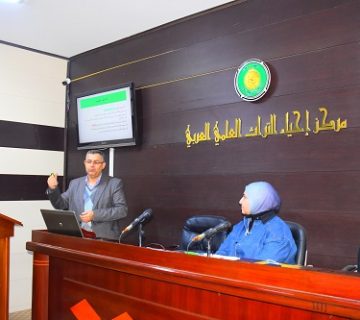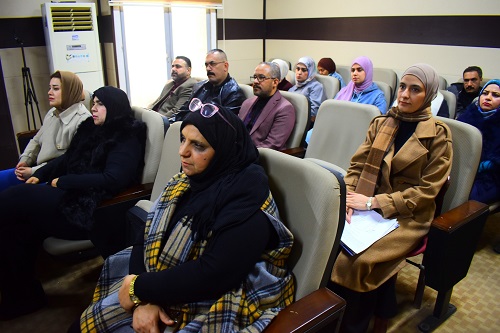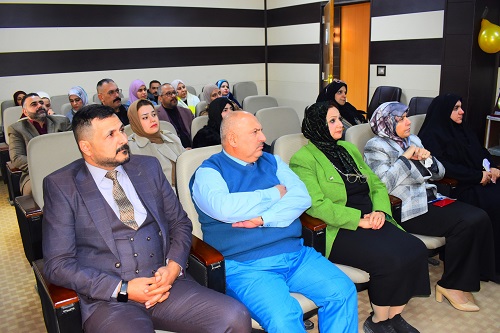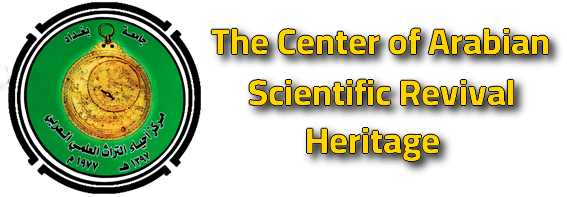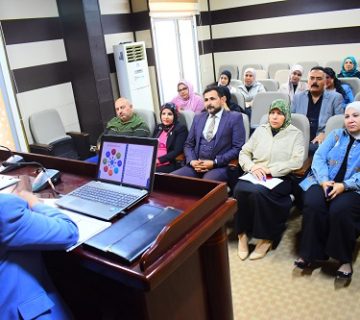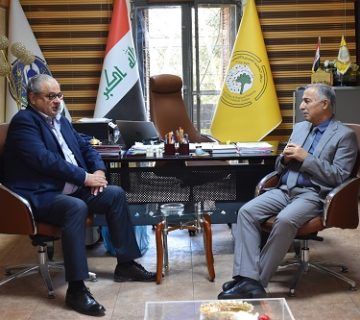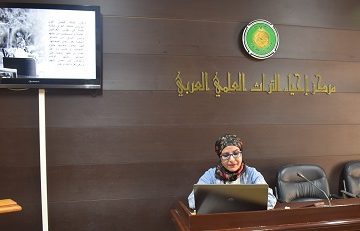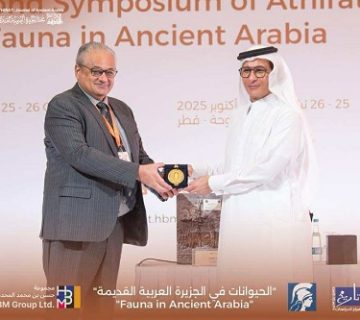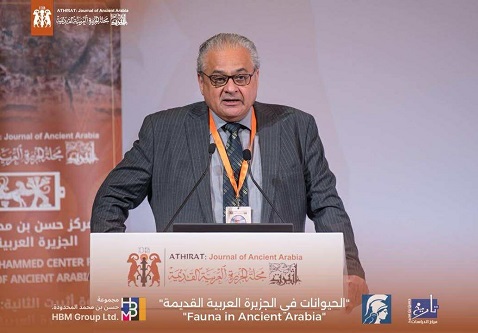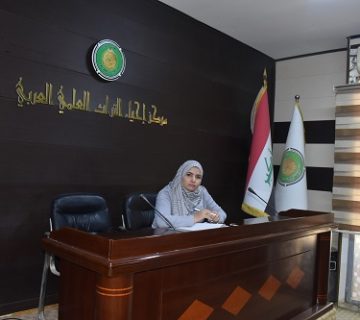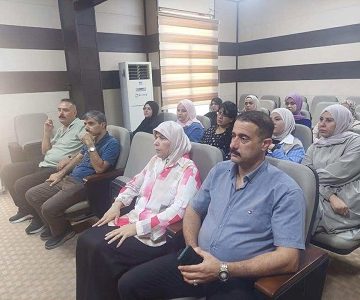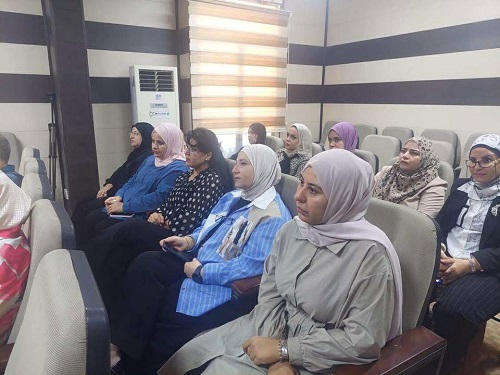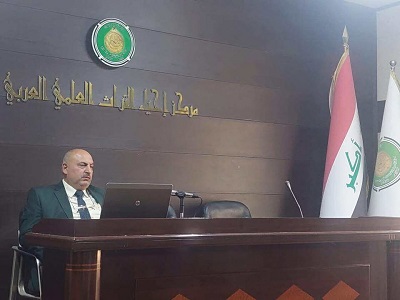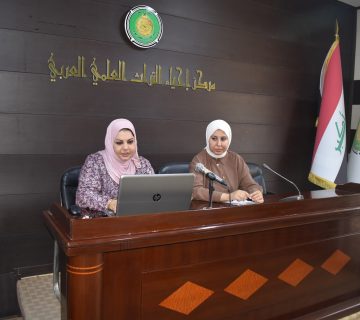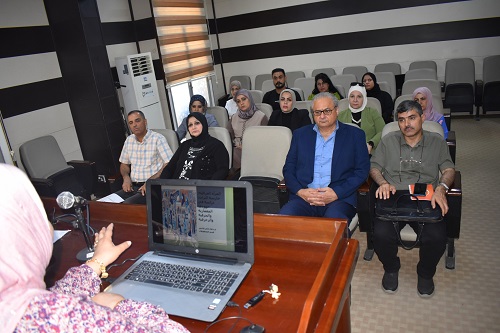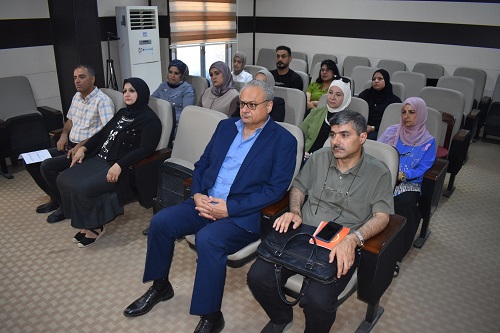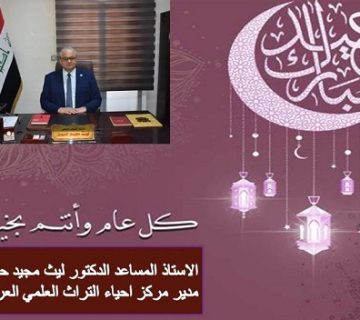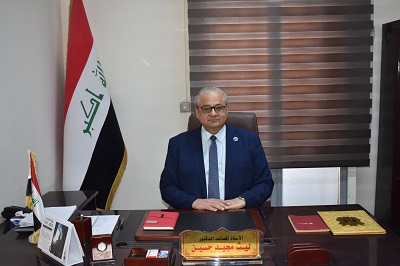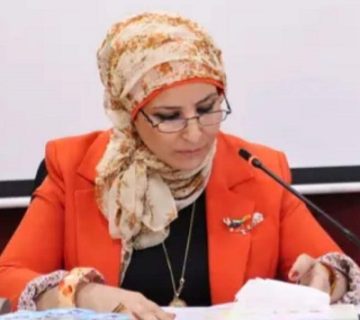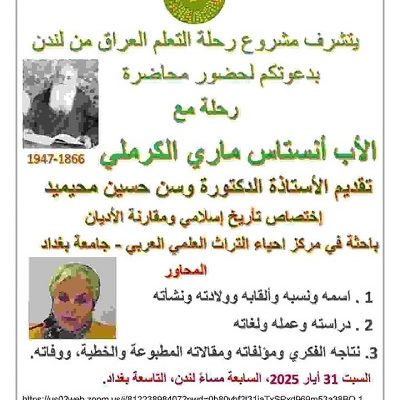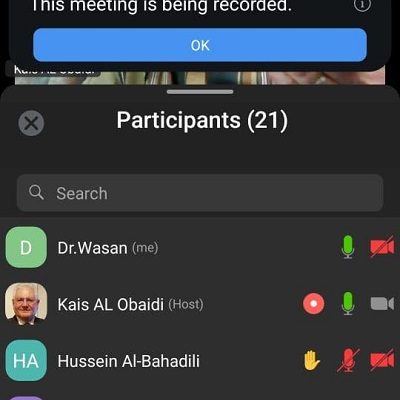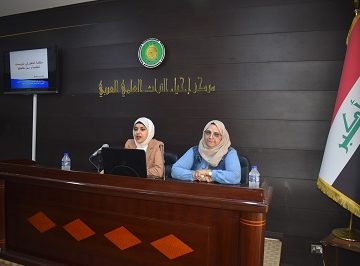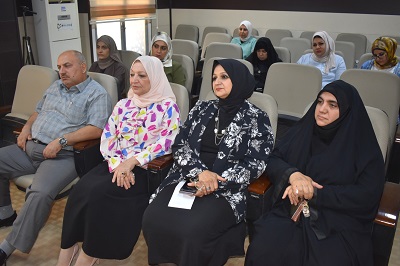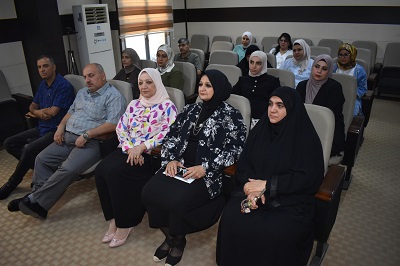Center for the Revival of Arabic Scientific Heritage Organizes a Seminar
Under the supervision of Prof. Dr. Laith Majid Hussein, Director of the Center for the Revival of Arabic Scientific Heritage at the University of Baghdad,the Center organized a seminar on Monday, November 3, 2025, at 12:00 p.m., with the attendance of several staff members, in Professor Nabeela Abdul Muneem Dawood Hall.
The seminar, entitled “King Faisal I in the Hearts of Christians,” was presented by Dr. Wasan Hussein Muhaimid, a faculty member in the Center. Dr. Muhaimid spoke about King Faisal I, the founder of the Kingdom of Iraq, highlighting his esteemed position in the hearts of Iraqis in general, and Christians in particular. She noted that the truest expressions of love are those felt after the passing of the beloved, transcending mere courtesy or the desire to win favor, reflecting genuine affection, loyalty, and gratitude toward those who served the country and its people with honor. The researcher emphasized the pure and sincere sentiments conveyed in a sermon by the Arabic-speaking priest, Father Anastasius Al-Karmali, delivered during a session held by the Catholic Christian communities in Baghdad to commemorate the deeds of His Majesty King Faisal I, who passed away in Bern on September 17, 1933. The sermon was presented to his son and successor, King Ghazi I, as a respectful tribute to the late King from the Carmelite Fathers’ mission in Iraq.
Father Anastasius described the love and trust of the Christian communities toward King Faisal and his leadership, addressing the audience to explain the purpose of his sermon, which concluded with prayers for the late King.
